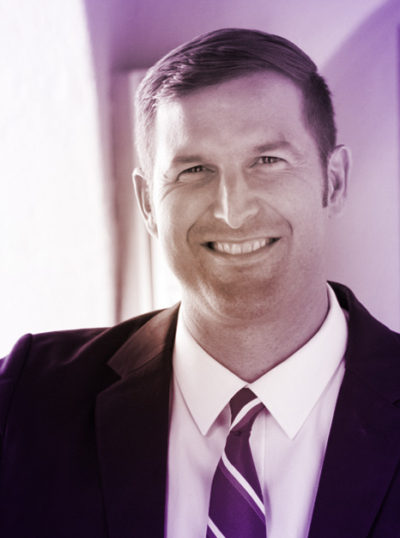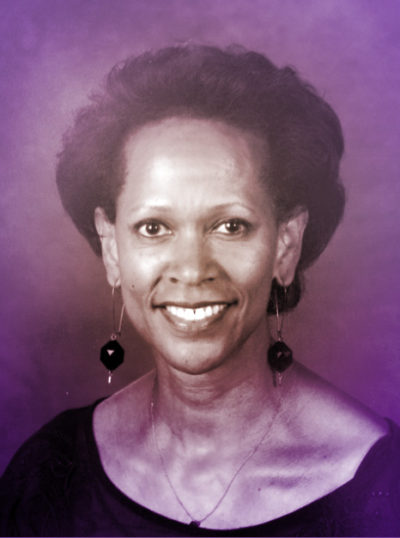I am a product of privilege. I stand here as a white, cisgendered, heterosexual male. I’m tall, able-bodied and right-handed. I was raised a Christian in a well-to-do family in Georgia by cisgendered heterosexual parents committed to one another with a professional career. I went to an independent school and an Ivy League college, and have always learned in ways that our society sees as conventional. My family were signers of the Declaration of Independence—this has always been my country, except for the time when parts of my family fought for the Confederacy. An aspect of growing up in a genteel southern family was that I was taught not to talk about politics, religion, sex, money or race. (Looking back, I wonder a bit what we actually did talk about…)
It has been a process to come to terms with this personal history of privilege—to not feel pride at parts of it and deep shame about other aspects. And while we did not talk expressly about it, looking back my parents worked relentlessly to insure that my brother and sister and I had perspective. Travel, arts, literature, music, theatre, comedy were our windows and mirrors. Still within weeks of starting my freshman year at Dartmouth, I had successfully suppressed my southern accent, as I self-consciously heard it as a sign of close-minded bigotry and lack of education.
As I have grappled with my own privilege, I’ve come to several realizations. One is knowing when to shut up (and I do appreciate the irony of being the white man at the mic saying that I know when to shut up). For centuries, my voice has dominated, my people have set the agenda, my history has never been relegated to the sidebar of textbooks. Now is the time for me to bear silent witness, to pass the talking piece and hear other stories. It is a critical practice that those of us with privilege can exercise every day and in every situation. A second realization is that the work of calling out privilege, of standing up to bigotry, of stepping in when a joke crosses a line is not the work of others, of those who “should be offended,” of people of color or people who have suffered oppression or slight—no, it is my work and it is our work.Not because the world needs to be a safe space where no one is ever offended, but because the act of standing up to these things makes all of us more connected, more empathetic, better allies, and more human. And it is the beginnings of a course correction for the mechanisms of privilege.
Looking out at our community, I see a group that is increasingly diverse, in countless ways both visible and invisible. And I know firsthand from hours of admissions decisions and from hiring fairs and interviews for admin, students, faculty and staff just how meticulously we deliberate on who to bring into the Oakwood community. Each person here heard something about Oakwood that attracted you, then experienced countless conversations, interviews, sample lessons, sample classes, outside events, financial sacrifices, advice from family or elders you respect, and a host of people seen and unseen who believe in you—and now you are here. And each one of you absolutely deserves to be here, to belong here and to be listened to here. You being here is of great significance. While other schools and institutions work hard to conform people to a particular mold, Oakwood values, in fact is built upon, something fundamentally different.
Here, we recognize and embrace, demand, that each individual make their mark on this institution. We know that the Old Oakwood was lovely, but it can’t be the Now Oakwood because the room has a different collection of 500 humans in it, and we’ve landed here with a job to do in alignment with the philosophy and values of the school. And in better living out that philosophy and values than we did yesterday, or last year, or decades ago.
Which brings me to another realization regarding my own privilege. I must understand and be aware that when I walk into a room, it is not just William. I also bring with me the shadow side of my privilege—institutional racism, Jim Crow, assault against women, a glass ceiling, Stonewall, a narrow construct of gender and sexuality, exclusion, classist elitism. I don’t bring those things with me because I believe in them. In fact I dedicate my life to undoing them. But these are the very things upon which my privilege has been built and how it has been reinforced for centuries. I don’t need to deal with this in shame, but if I ignore these facts, I’m perpetuating the injustice.
This raising of awareness, critical reflection, and time for contemplation is at the heart of our Diversity Week 2017—Windows and Mirrors. We must examine Oakwood because we are Oakwood. We must unpack the privilege inherent in an elite private school. We must redouble our efforts to foster a sense of community and consider differing perspectives respectfully and openly. In this week, we take stock of the tremendous work being done every day of the school year in every classroom, lunch table, club meeting, practice, rehearsal, and professional development to further the work of diversity, equity and inclusion. And we recommit ourselves to the work still to be done.
Thank you.




